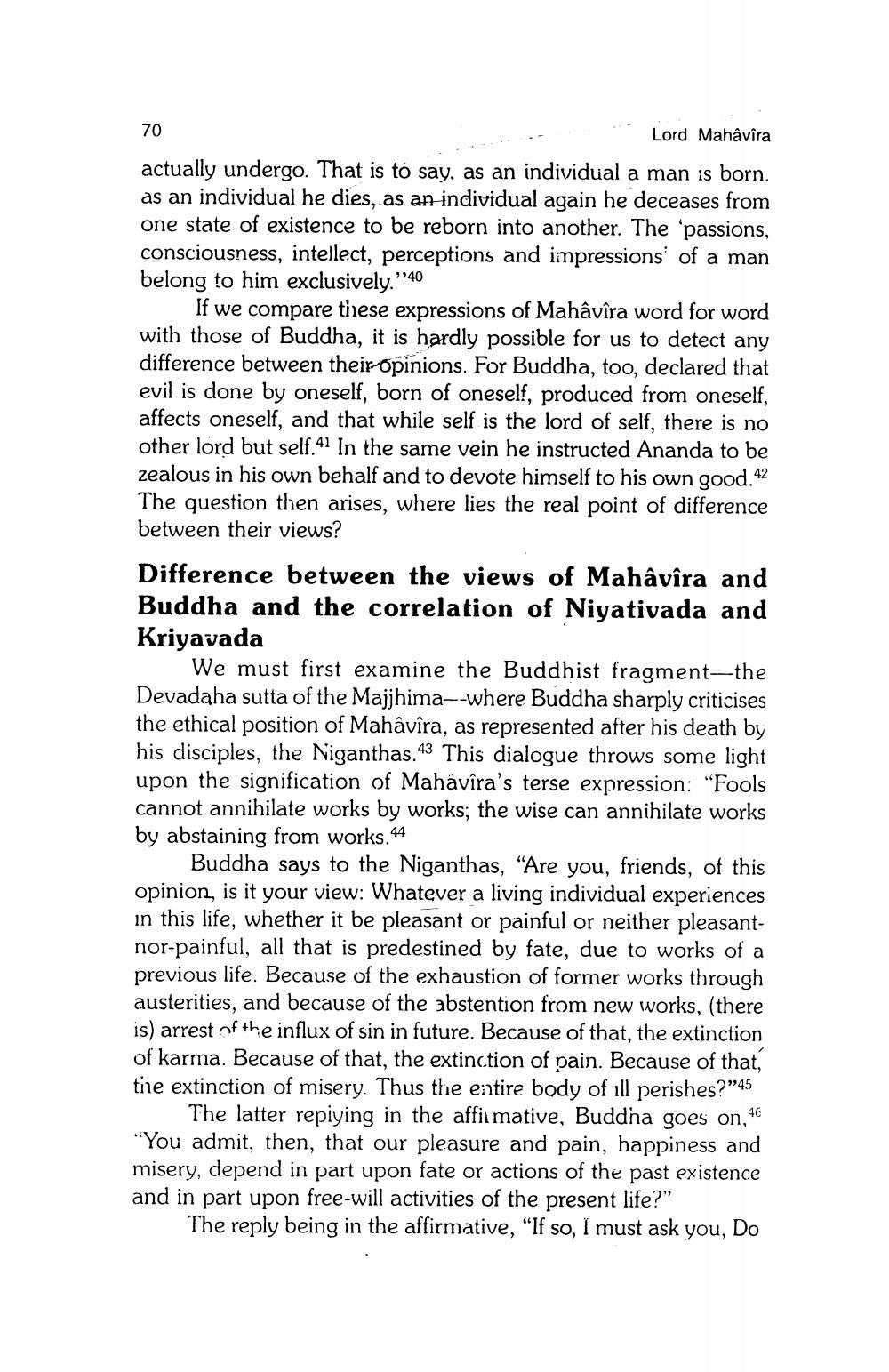________________
Lord Mahâvîra
actually undergo. That is to say, as an individual a man is born. as an individual he dies, as an individual again he deceases from one state of existence to be reborn into another. The 'passions, consciousness, intellect, perceptions and impressions of a man belong to him exclusively."40
If we compare these expressions of Mahâvîra word for word with those of Buddha, it is hardly possible for us to detect any difference between their opinions. For Buddha, too, declared that evil is done by oneself, born of oneself, produced from oneself, affects oneself, and that while self is the lord of self, there is no other lord but self.41 In the same vein he instructed Ananda to be zealous in his own behalf and to devote himself to his own good.42 The question then arises, where lies the real point of difference between their views?
70
Difference between the views of Mahâvîra and Buddha and the correlation of Niyativada and Kriyavada
We must first examine the Buddhist fragment-the Devadaha sutta of the Majjhima--where Buddha sharply criticises the ethical position of Mahâvîra, as represented after his death by his disciples, the Niganthas.43 This dialogue throws some light upon the signification of Mahävîra's terse expression: "Fools cannot annihilate works by works; the wise can annihilate works by abstaining from works.44
Buddha says to the Niganthas, "Are you, friends, of this opinion, is it your view: Whatever a living individual experiences in this life, whether it be pleasant or painful or neither pleasantnor-painful, all that is predestined by fate, due to works of a previous life. Because of the exhaustion of former works through austerities, and because of the abstention from new works, (there is) arrest of the influx of sin in future. Because of that, the extinction of karma. Because of that, the extinction of pain. Because of that, the extinction of misery. Thus the entire body of ill perishes?"45 The latter replying in the affirmative, Buddha goes on,4 "You admit, then, that our pleasure and pain, happiness and misery, depend in part upon fate or actions of the past existence and in part upon free-will activities of the present life?"
46
The reply being in the affirmative, "If so, I must ask you, Do




